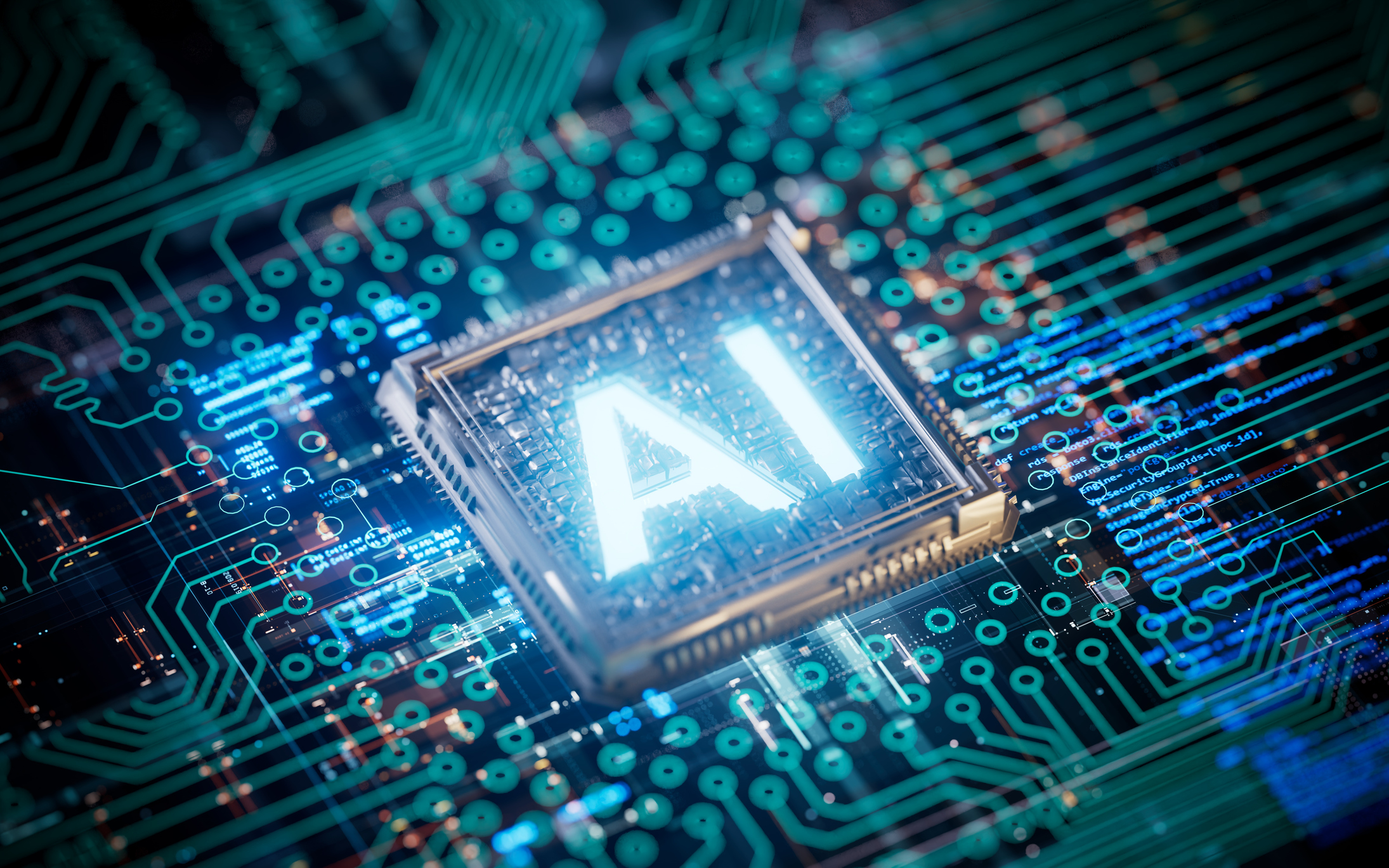AI stats every business must know in 2026
Artificial intelligence (AI) has cemented its role as a transformative force in business since its rise to public prominence in 2022. With the accessibility of AI increasing constantly, it is no longer a niche technology for tech giants but an essential tool for all businesses. With the global AI market set to grow by 38% (Teneo), adapting to and understanding AI is no longer just a helpful additive to your business, but a critical move to allow your company to stay up to date. Companies entering 2026 equipped with key insights about AI trends and applications will gain the upper hand in both efficiency and competitiveness.
Other articles in this series:
L&D trends and stats essential for every workplace in 2026
Financial services industry trends shaping 2026
AI adoption and growth
AI is being adopted and integrated into companies and their strategies worldwide. In 2026, AI is expected to have a significant impact on various sectors within the global economy. This adoption will reshape productivity, enhance customer engagement, and unlock new avenues for innovation.
Industry adoption rates are climbing, and forecasts suggest that this will have an influence on both local economies and the broader market. As AI’s presence continues to expand across sectors, companies are not only realizing immediate gains but are also positioning themselves for sustainable, long-term growth. This shift, which has come on rapidly in the last few years, is reshaping economic growth and competitive dynamics between companies.
- AI has an expected annual growth rate of 36.6% between 2024 and 2030 (Teneo).
- A study by McKinsey shows that AI adoption amongst companies has leapt to 72%, after hovering around 50% from 2020-2023.
- PWC predicts a boost in gross domestic product (GDP) of up to 26% for local economies from AI by 2030.
- ChatGPT had over 100 million users as of January 2023, this figure grew to more than 180 million users by the end of 2024 (Teneo).
- AI could contribute up to USD15.7 trillion to the global economy by 2030, more than the current output of China and India combined. Of this, USD 6.6 trillion is likely to come from increased productivity and USD 9.1 trillion is likely to come from consumption-side effects (PWC).
AI in business
Recent data highlights the role of AI in shaping the future of business- from the practical use of AI to the investment in products. Organizations across industries are integrating AI technologies not only to streamline operations but to drive strategic growth and innovation. With a range of versatile tools available, there is no one-size-fits-all approach to AI adoption.
While some companies utilize AI for automation and reporting, others are applying it to tasks such as internal communications and administrative functions, allowing teams to have additional time to focus on higher-value activities. These insights showcase the importance of AI education to ensure businesses adopt these technologies in ways that best support their needs and goals.
- 67% of respondents expect their organizations to invest more in AI over the next three years (McKinsey).
- 75% of executives believe AI will help their organization grow (Authority Hacker).
- Forbes stated that 46% of business owners surveyed use AI to craft internal communications.
- 92.1% of businesses have seen measurable results from AI (Business Dasher).
- Of business owners surveyed by Forbes, 64% believe that AI will improve customer relationships.

AI and employees
As AI gains traction in the business world and reshapes the workforce landscape, employees are among the first to experience its impact on their day-to-day work. Business leaders are optimistic about AI’s potential to enhance team efficiency and productivity.
While AI is automating a significant share of tasks, human talent remains essential to drive strategic insights and innovation. There are many ethical AI education programmes and pressure on companies to ensure they are using AI responsibly. AI is automating a significant share of tasks, while human talent remains essential to drive strategic insights and innovation. These insights illustrate AI’s evolving role as a trusted tool for employees for meeting the demands of a rapidly changing market.
- 72% of business leaders believe AI implementation will improve productivity amongst their teams (CFO).
- By 2025, AI will have displaced 75 million jobs globally but will have created 133 million new jobs. This means that there will be a net gain of 58 million jobs globally (Inno Pharma Education).
- Organizations today estimate that 34% of all business-related tasks are performed by machines, with the remaining 66% performed by humans (World Economic Forum).
- Despite concerns about AI usage, 65% of consumers still trust businesses that employ AI technology (Forbes).
Emerging trends for 2026
2024 saw many AI trends emerge such as the expanded use of Generative AI (Gen AI) in business. McKinsey stated that in 2024, 72% of organizations are using Gen AI in one or more business functions, compared to 56% in 2021. While Gen AI will continue to grow in 2026, new trends are emerging, with voice and agentic AI pinned as being the big AI trends of 2026.
Voice AI
Voice assistants are quickly emerging as a significant trend in AI, poised to become a cornerstone of digital interaction in 2026. With the number of AI-powered voice assistants projected to grow rapidly, voice technology is becoming an integral part of professional settings. From mobile searches to workplace applications, consumers are increasingly embracing voice assistants as part of their daily lives. This upward trend signals a broader shift in how individuals interact with technology, highlighting new opportunities for businesses to engage users through seamless, AI-driven experiences.
- There will be 8 billion AI-powered voice assistants by 2026 (Teneo).
- 50% of U.S. mobile users use voice search daily. This trend showcases the growing prevalence of AI-powered voice assistants in everyday life (Forbes).
- In 2025-2026 it is predicted that 157.1 million users will be using voice search (Altindex).
Agentic AI
Agentic AI goes beyond the boundaries set by Gen AI and has a distinct role in corporate environments. By incorporating autonomous decision-making, it is able to complete multi-step tasks, interact dynamically with other systems, and respond to real-time data. Martin Bechard, principal consultant at Dev Consult Canada, has stated that “Agentic [AI] is at the early-adopter stage” (CIO). The adoption of agentic AI is expected to accelerate rapidly, moving beyond the early-adopter phase and becoming a key presence in many workplaces in 2026.

In 2026, AI will continue to be used as both a powerful strategic tool and for critical competitive advantage. As companies increasingly integrate AI into their operations, those who stay informed on AI trends, adoption rates, and emerging applications will be better equipped to leverage their full potential. Businesses that prioritize adaptability and proactive engagement with AI will not only improve efficiency but also position themselves at the forefront of an innovation-driven market.


